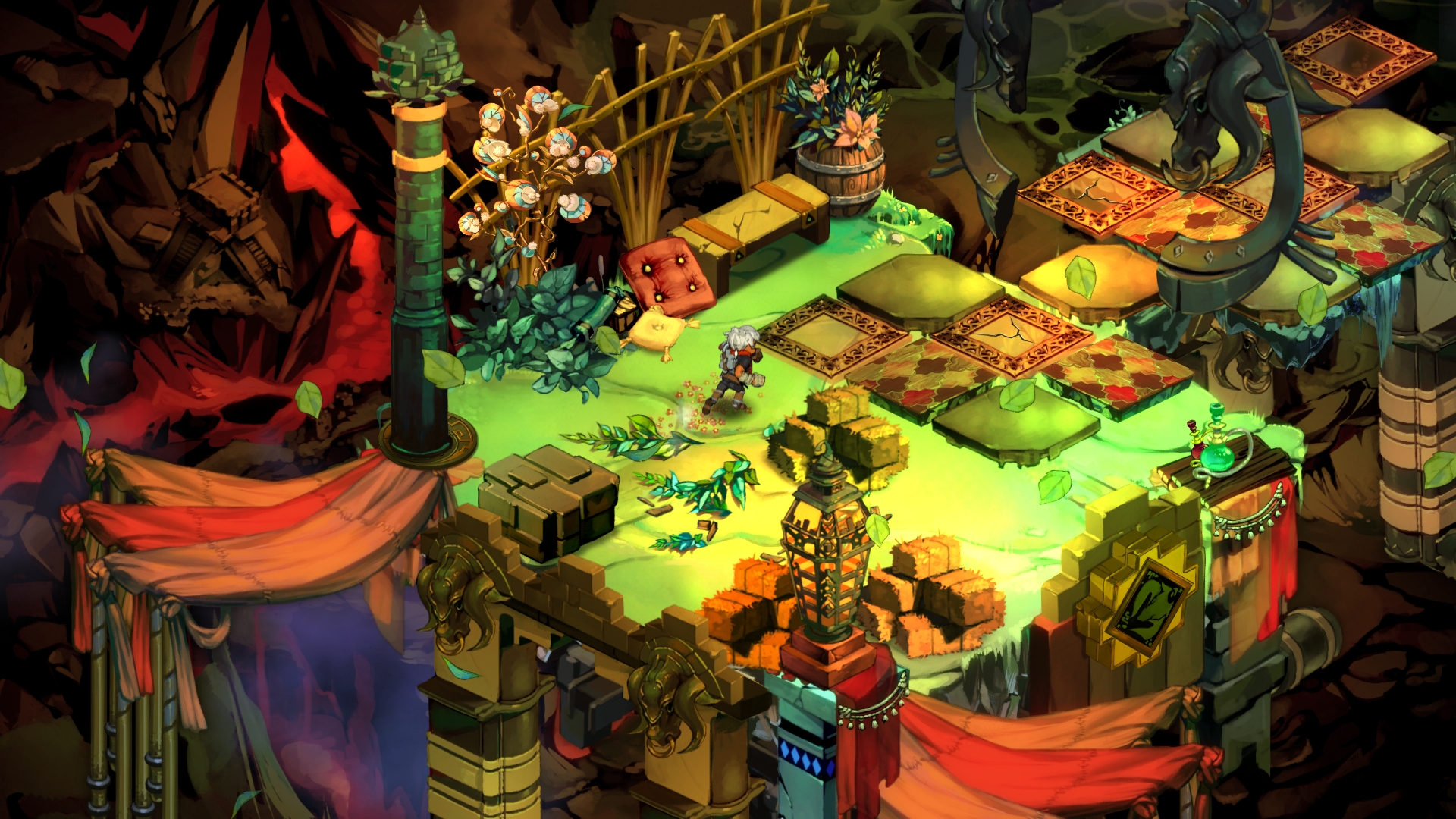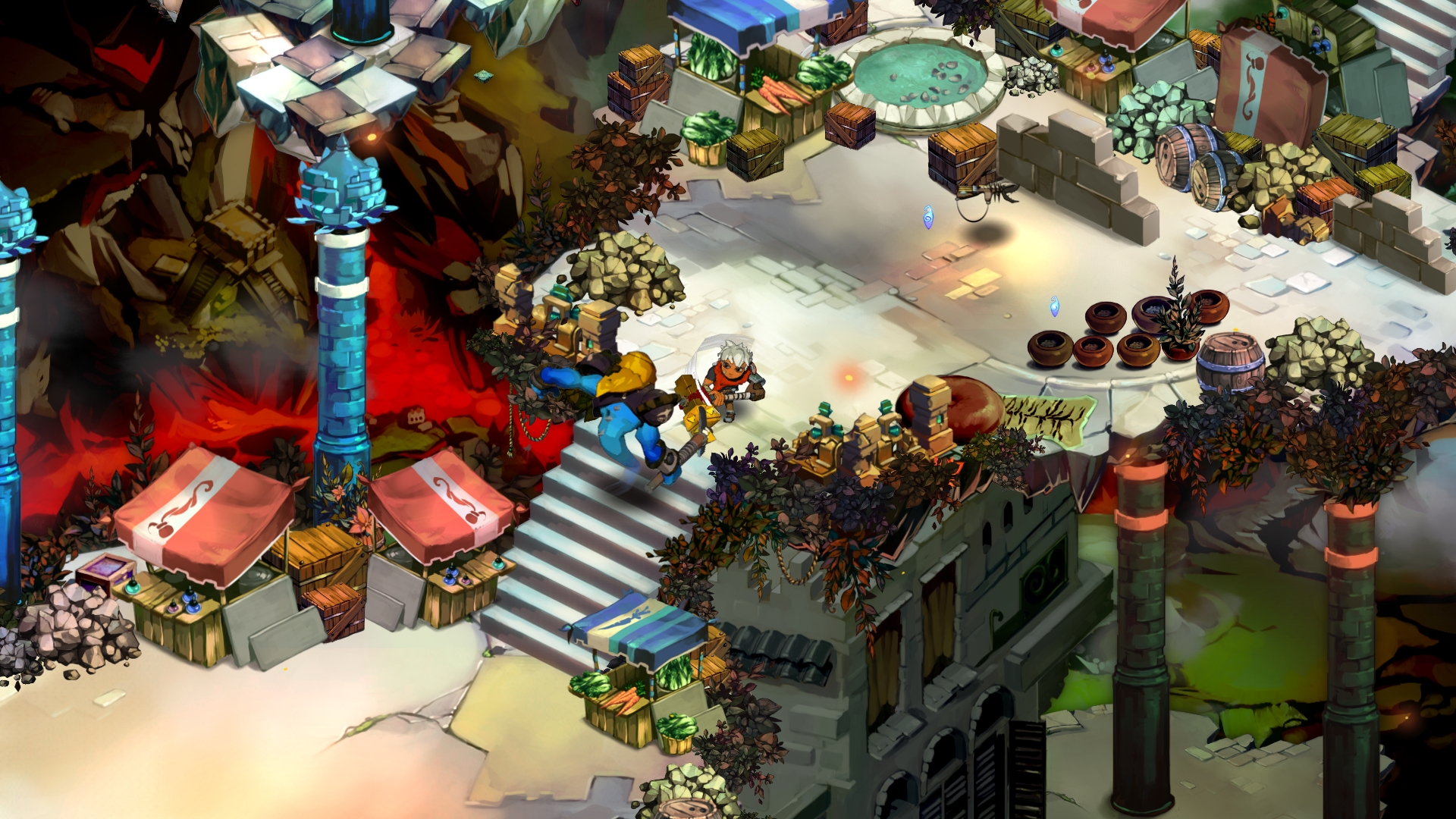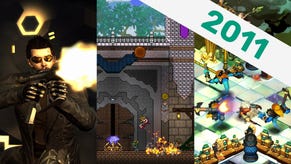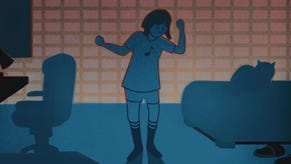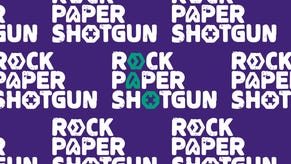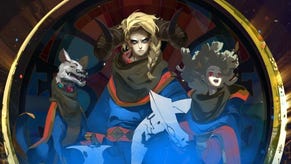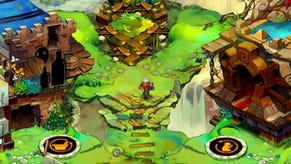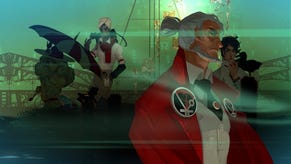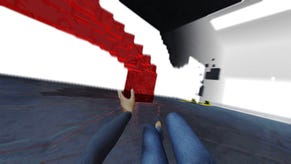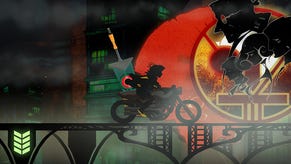The time I transcribed every line of Bastion's dialogue (twice) and found another, better story hiding underneath it
I don't know why, either, to be honest
I have a bit of a love-hate relationship with Supergiant Games. I loved Bastion, didn't really get on with Transistor, and have never summoned the strength to try another one since. Indeed, fellow Supergiant admirers Matt and Ollie were, and I quote, "aghast" when I said I wasn't much of a fan of Transistor's soundtrack earlier in the week (which are fighting words coming from the self-proclaimed soundtrack queen herself), but our chat reminded me just why I love Bastion as much as I do - and part of that is because back in 2012, I decided a fun thing to do would be to record every line of dialogue in the game, not once, but twice (because the New Game+ dialogue is different, I'll have you know), and then type it all up and write a 6000 word essay about the real story of Bastion for no reason in particular.
All right, it wasn't for no reason whatsoever. A former colleague of mine at the time asked me if I'd like to write one with the promise of showing it to Supergiant narrative man Greg Kasavin himself (who they did actually know, I might add), but I don't really know whatever happened to it. Either way, Greg Kasavin hasn't come knocking on my door offering me Supergiant's next big writing job, and it also hasn't been plastered it all over the internet with someone else's name on it, so I can only assume it was either a load of pseudo-intellectual codswallop (which is highly likely given how young and naive I was at the time), or it's still gathering virtual dust in an old inbox somewhere.
Even now, there's a part of me that still can't quite believe I actually did such a thing. 6000 words. On Bastion! Not to mention all that time spent playing and transcribing the darn thing. What madness! But, for the sake of finally putting all that effort to good use - because, let's be honest, what else am I going to use it for now except as supporter post fuel to prove a point to Matt and Ollie? - here's a massively abridged version that shows ONCE AND FOR ALL why Bastion is still Supergiant's bestest best game of all time.
As you may already know, Bastion is primarily a game about smashing stuff. Smashing enemies, street lamps, bits of furniture - anything, so long as you find the all-important Bastion cores to help save your broken world from the destruction wrought upon it by something called 'The Calamity'. It's also a game where every step you take conjures that broken world into being, each tile magically springing forth from the unknown as you move forward, mostly so you've actually got something to stand on while you're doing all that smashing.
Your journey is narrated by an old fella named Rucks, who mans the titular Bastion and is one of the only other Calamity survivors you encounter during the game. He reacts to almost everything you do onscreen. Smash something, and there's a 99% chance he's got a little quip or comment to go with it.
This is the thing I love most about Bastion - you're not only physically re-creating the world as you move through it, but you're also filling in bits of the story by engaging with it through your actions. It encourages you to smash everything in sight - and that includes telling you about the lives of the people you once knew, the people who have now been turned to stone because they didn't make it out of the Calamity alive.
Rucks' little story tidbits start off innocently enough in a 'Hey, this guy always wanted his ashes scattered here' kinda way, but when you enter the Hanging Gardens and Rucks decides to keep his mouth shut as you plough through every last soul frozen in time there, you realise that, 'Hey, you aren't actually filling in any more story here, you're just destroying the last remaining memory of all these people for the hell of it because you like smashing stuff to see what the old man's gonna say.'
Actually obtaining a Bastion core is similarly destructive - the moment you touch it, the world you've just brought back into being is plunged into chaos, all hell breaking loose as you make for the exit on the skyway. Rucks tells us the cores will fix everything, but so far it seems to be doing the exact opposite.
Then you arrive at Jawson Bog, where upon obtaining that area's core you start to hallucinate and fall unconscious. Here, the game plays with Rucks' words, twisting them to create a much more sinister tale. "The Kid succeeds where the Calamity failed," Rucks says at one point, casting you as the villain as you smash a herd of gasfellas back into the woodwork. And deep down, you know there's some truth in it.
But the real villain isn't you, or the guy the game would have you believe is the main antagonist of this story, Zulf. It's Rucks. Because he's a selfish old so-and-so who's so pig-headed he doesn't see that we're in exactly the same situation as the very creatures you've spent the game destroying. For they, too, have built their own Bastion "just like we have", we discover on Mount Zand, they've rounded up their survivors "just like we have", they've been searching for cores and shards "just like we have", and Rucks even says they've probably thought of turning back "just like we have".
Yet for him, it's "us" and "them", with no possibility of peace or reconciliation. We just take what we need and leave, because Rucks told us so. Ironic, then, that moments later our own Bastion gets destroyed by Zulf and his people, the Ura. Once, Zulf was part of "us", one of the survivors. Now, he's part of "them".
But Rucks and Zulf aren't really that different. They both order the destruction of a Bastion, and they both believe they're the only ones who are in the right. The only thing that sets them apart is that Rucks doesn't have anyone to answer to if it all goes wrong, which is why his vision is all the more troubling. Rucks isn't interested in the Ura when you try and show him a drawing you found in their old homeworld - he just wants to "undo" what's happened - a word that's previously only been used to describe something bad and unnatural, like the Calamity.
His worst crime, however, is that he never even considers using the Bastion's alternate power to simply just evacuate your band of survivors. Instead, he insists on using it to turn back time and reset everything to the way it was. But then you realise, 'Wait a minute, didn't Rucks once say something like he feels like he's told us this part a thousand times before? Or that something's been difficult to explain, no matter how many times he tries? Maybe this isn't the first time the Calamity's happened at all - MAYBE, WE'RE STUCK IN AN ENDLESS LOOP, and man alive, maybe I shouldn't be trying to help Rucks fix this thing any more.'
Sure, we have to confront Zulf by design, but the real test of whether you end up a hero or a villain comes in that moment when you finally face Rucks in the heart of the Bastion. Do you turn back time and risk setting this in motion once again (like a New Game+, for example?), or do you just get the hell out of there and find somewhere new to live, breaking this apparent endless cycle of destruction? The fact Rucks can't even conceive why we'd want to keep our current life and start afresh is telling, and it's perhaps the game's greatest calamity of all. In the end, he's someone who can only look backwards, despite having been our trusted guide all this time as we navigate this new and uncertain world around us.
So in summary, twenty-something me was incredibly pretentious stretching all that out to 6000 words, because hoo boy reading that all over again was just excruciating. Still, I hope this condensed version wasn't too awful to read. I did actually really enjoy looking at how the dialogue changed between playthroughs, and it genuinely made me appreciate the game a lot more and the craft that went into selecting particular words and phrases. So that's why I like Bastion more than Transistor, Matt and Ollie - although maybe if I went back and recorded all of Transistor's dialogue as well, then maybe I'd have a change of heart. Who knows!
Next time on Katharine's mad supporter post corner, the time I tried to argue that Metroid was essentially Robinson Crusoe: The Game!
This post was originally posted for, and funded by, the RPS Supporter Program.


